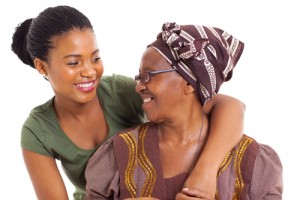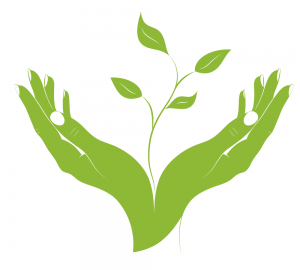 Acupuncture and Menstrual Irregularities
Acupuncture and Menstrual Irregularities
A woman’s menstrual cycle is a very delicate hormonal balance and can be disturbed by many factors including stress, unhealthy diet, lifestyle factors, excessive alcohol and caffeine consumption. For some women the month can become very difficult from ovulation onwards with many physical health problems occurring and life becoming an emotional roller coaster. Acupuncture is one of the most effective treatments for regulating these hormonal imbalances, it uses a different diagnostic method compared to western medicine, detecting subtle imbalances which manifest in a variety of symptoms. Treatment is always aimed at treating the root cause.
Acupuncture is an effective treatment for regulating many problems around the cycle:
- PMT: mood swings, bloating, headaches and breast tenderness
- Painful periods
- Irregular periods
- Amenorrhoea/poor or absent ovulation
- Heavy bleeding
- Polycystic ovaries
- Fibroids
- Endometriosis
Tips for a healthy menstrual cycle
- Decrease refined sugar and flour, alcohol, coffee, tea and chocolate. All of these are inflammatory and can exacerbate many symptoms around the cycle. Experiment with reducing or eliminating and then record how you feel. Some people can handle small to moderate amounts without much discomfort, but some cannot tolerate them at all.
- Eat only organic meat and dairy products. Conventional meat and dairy products have added hormones and antibiotics. These are endocrine disruptors and upset the body’s hormonal balance.
- Avoid extremely cold or raw foods, iced drinks and excessive exposure to cold environments during your period. It takes extra effort to digest cold, raw foods and they can weaken the digestive system. Cold temperatures also constrict the flow of qi and blood which can cause menstrual cycle problems. Externally, avoid exposure to cold environments during your period (swimming in cold water, not dressing appropriately during cold weather, sitting on cold surfaces, etc.) The uterus is particularly vulnerable to external cold temperatures which can cause painful cramping or even infertility.
- Use food as medicine. Beneficial foods, herbs & spices that help alleviate PMS and menstrual cramping include: chives, cardamom, marjoram, onion family, fennel, chestnut, dill seed, radish, mustard greens, ginger, basil, eggplant, mint, tangerine peel, rosemary, peaches, saffron, turmeric, oregano, cumin, and cherries.
- Choose pads over tampons. This is especially good to do if you suffer from painful periods as tampons disrupt the normal downward movement of menstrual flow.
- Engage in appropriate exercise. Exercise is important, however avoid vigorous exercise during the heaviest days of your period. Stick with gentle walking and stretching. A lot of sources say it’s better to work out during your period because it helps minimize cramps. However, from a TCM (Traditional Chinese Medicine) perspective, as well as many other cultures, a woman’s period is a time for rest. Your body is using a lot of energy to cleanse and empty the uterus and too much activity will deplete and exhaust the Qi and blood. Intense exercise is more appropriate in the week before your period to help circulate Qi and blood, which soothes mood swings and lethargy.
- Use a different form of birth control. Oral contraceptives are often marketed to help “regulate” your cycle. However, essentially they turn off your ovaries and create a simulated cycle. Many women complain of weight gain, bloating, mood swings and low sex drive from the artificial hormones. Long term use of oral contraceptives make it difficult for your body to resume its normal hormonal function after discontinuing them. Women’s cycles sometimes stay irregular for up to a year after stopping the pill.
- Manage Stress. Stress disrupts the entire cascade of hormone signals. Your body puts out stress hormones at the expense of sex hormones. Meditation, yoga, gardening, spending time in nature, exercise and acupuncture are all good ways to de-stress. Unplugging from phones, tablets and finding some quiet time each day where you are not overstimulated is helpful.
- Plan life accordingly. The period is a time for rest, it’s okay to take it easy for a few days. If you can, don’t take on too many responsibilities or activities and give yourself adequate rest and downtime to renew your energy. Treating yourself kindly during your period will go a long way to help you feel better all month.
Acupuncture and the Menopause
The change in hormone levels during the perimenopause and menopause, particularly the decline in levels of oestrogen, can cause acute menopausal symptoms: 30-70% of women in Western countries will experience vasomotor symptoms such as hot flushes and night
sweats. some women also report vaginal dryness, psychological symptoms including tiredness, sleep disturbances, mood swings, forgetfulness and loss of libido. The average duration of menopausal vasomotor symptoms is about 4 years but in around 10% of women, they last longer than 12 years.
Systematic reviews and randomised controlled trials have found that acupuncture is at least as effective and sometimes superior to, hormonal drug treatment. However reviews suggest that more high quality studies are needed to confirm this.
Acupuncture may help reduce symptoms of the menopause and perimenopause by:
- Regulating serum estradiol, follicle stimulating hormone and luteotrophic hormone
- Increasing relaxation and reducing tension. Acupuncture can alter the brain’s mood chemistry, reducing serotonin levels and increasing endorphins and neuropeptide Y levels, which can help to combat negative affective states
- Stimulating nerves located in muscles and other tissues, leading to the release of endorphins and other neurohumoral factors which changes the processing of pain in the brain and spinal cord.
 Acupuncture: Fertility and ART ( Assisted Reproductive Technologies)
Acupuncture: Fertility and ART ( Assisted Reproductive Technologies)
Cardiff Acupuncture Clinic has provided fertility treatment since 2002, and therefore has a wealth of experience in this field. Treatment can improve reproductive health in both women and men, increasing their chances of conceiving naturally. Chinese medicine uses different diagnostic techniques and is particularly effective in cases of unexplained fertility. We also provide treatment to support those undergoing Assisted Reproductive Technologies (ART) such as IUI, ICSE and IVF. See below for more information.
Acupuncture- a holistic approach
Acupuncture is a holistic approach, therefore the initial consultation will explore not only your physical health but also other areas of your life which may be having an impact on your ability to conceive naturally. Generally, busy lifestyles, poor diet, lack of sleep and stress factors have a significant detrimental effect on ones ability to conceive. Therefore in addition to acupuncture treatment, life style and dietary changes might be suggested to help strengthen your chances of conceiving.
Acupuncture helps with stress during trying to conceive
It is very hard when a couple month by month are failing to conceive. Achieving pregnancy starts to become an uncertainty,so inevitably a lot of emotions come to the surface. Acupuncture is excellent at calming stress and anxiety when it all gets too much, and in every treatment emotional health is addressed, helping individuals to feel calmer, more positive and better able to cope with the ongoing situation.
Research has established plausible mechanisms to explain how acupuncture may benefit fertility:
Acupuncture helps to:
- counteract stress levels, stress stimulates the sympathetic nervous system, which causes constriction of ovarian arteries. Acupuncture inhibits this sympathetic activity improving blood circulation to the ovaries enhancing the environment in which ovarian follicles develop.
- balance hormones
- regulate the menstrual cycle when there are menstrual irregularities, obtaining the best conditions needed for conceiving
- improve blood flow to the uterus improving the thickness of the endometrial lining and increasing the chances of embryo implantation
- stimulate ovulation
- support ovarian dysfunction in some women eg polycystic ovarian syndrome. Acupuncture is thought to help reduce sympathetic nerve activity, balance hormone levels and reduce the number of ovarian cysts
- helps to improve sperm health, low sperm count, mobility and motility

Acupuncture treatment increases the chances of successful pregnancy for couples undergoing ART (Assisted Reproductive Technologies) IVF, IUI, ICSE
Research done in 2001 by PAULUS ET AL showed that Acupuncture before and after IVF increased chances from 21% to 41%
Although acupuncture treatment before and after embryo transfer is beneficial and has shown to increase the chances of a successful pregnancy, the best scenario is that couples begin acupuncture treatment a few months prior to the ART procedure, as this increases the chances of a successful outcome further.
A number of studies have shown that acupuncture treatments leading up to IVF may benefit fresh cycles by 77% Hullender Rubin et al, 2014 cohort study in 2014
How acupuncture treatment helps for IVF and other ART procedures:
- lessens the side effects of drugs used in IVF eg normalising cortisol and proactin levels on IVF medication days, thus reducing stress
- improves uterine blood flow, improving thickness of the endometrial lining, increasing the chances of embryo implantation and preventing uterine contractions
- increases egg production and improves oocyte quality which increases chances of fertilisation
- enhances luteal function
- regulates follicle stimulation hormone-receptor expression
- promotes embryo implantation
